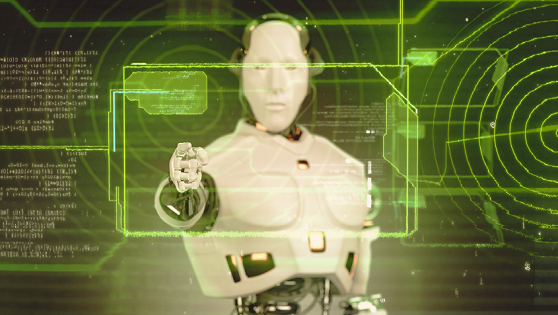
In this competitive, tech-driven world, quality of product has become more important than ever. Quality control is no longer a manual labor-intensive process but a data-driven process thanks to artificial intelligence (AI). AI has changed the way industries do quality control; efficiency, precision, and scalability are the new buzzwords. This post will look into the role of AI in enhancing quality control across various industries and the benefits that make it a must-have.
How AI Improves Quality Control
- Automated Inspections
AI-powered vision systems can inspect products at incredible speeds and identify defects with high accuracy. These systems use machine learning algorithms to recognize patterns and anomalies that human inspectors might miss, ensuring consistency.
- Predictive Analytics
AI can analyze historical data to predict quality issues before they occur. By identifying trends and patterns, AI helps in proactive quality management, reducing defects, and improving overall product quality.
- Real-time Monitoring
AI enables continuous monitoring of the production process, providing real-time feedback and allowing for immediate corrections. This reduces downtime and ensures any quality issues are addressed on time.
- Data Analysis
AI can process and analyze large amounts of data from various sources, providing deep insights into the production process. This analysis helps in identifying the root cause of defects and implementing measures to prevent them.
Industry Applications

- Manufacturing
In manufacturing, AI-driven quality control systems can detect defects in assembly lines, so every product meets the standards. AI can also optimize the manufacturing process by identifying inefficiencies and suggesting improvements.
- Automotive
The automotive industry uses AI to inspect parts and components for defects to ensure safety and reliability of vehicles. AI systems can analyze images and sensor data to detect issues that can compromise quality and safety.
- Pharmaceuticals
In pharmaceutical industry AI is used to monitor the production of drugs to ensure they meet the quality standards. AI can detect variations in the manufacturing process that can affect the efficacy and safety of the medication.
- Food and Beverage
AI-powered quality control systems in the food and beverage industry can detect contaminants, ensure correct labeling, and monitor the freshness of products. This ensures high standards of safety and quality.
- Electronics
The electronics industry uses AI to inspect circuit boards and components for defects. AI systems can identify tiny flaws that can impact the performance of electronic devices, so only high-quality products reach the market.
AI Quality Control Benefits
- Accuracy
Artificial Intelligence can detect defects with high precision, so there is less chance of bad products reaching customers. Consistent quality standards.
- Speed and Efficiency
Automated inspections and real-time monitoring speed up the quality control process. AI can process large data quickly, so faster decision-making and less production downtime.
- Cost Savings
AI helps in identifying and fixing quality issues early, so less waste and less cost of defects. Overall cost savings for manufacturers.
- Flexibility
AI systems can scale up or down to any production volume. Small batch or mass production, AI can control quality at all levels.
- Proactive Quality Management
AI enables proactive quality management by predicting issues and preventing them. Reduces defects and overall product quality.
Challenges
While AI brings many quality control benefits, here are the challenges to consider:
- Data Privacy
AI involves handling large data, so privacy and security are concerns. Data must be protected and compliant with regulations.
- Integration with Existing Systems
Integrating AI with existing quality control systems is complex and requires investment. Businesses must ensure compatibility and seamless integration for the best results.
- Reliability and Bias
AI can produce biased results if training data is not representative. AI algorithms must be reliable and fair for quality control.
- Human Intervention
Despite AI, human oversight is still important. AI + human expertise = better and more balanced quality control.
AI in Quality Control Future
The future of AI in quality control is bright, with technological advancements to bring even more efficiency and precision. Here are the trends to watch:
- Edge Computing
Edge computing allows data to be processed closer to the source, allowing real-time analysis and faster decision-making. This will power AI quality control systems.
- AI Robotics
AI and robotics will automate more quality control processes, more complex inspections, and less manual intervention.
- Advanced Machine Learning
More advancements in machine learning algorithms will improve AI accuracy and reliability, so AI will be more effective in quality control.
- IoT
The Internet of Things (IoT) will play a big role in quality control by providing real-time data from connected devices. AI can analyze this data to monitor and optimize production.
Conclusion
In conclusion, the role of AI in enhancing quality control is transformative and indispensable across various industries. AI’s automated inspections, predictive analytics, and real-time monitoring can improve businesses’ quality control processes. This integration drives innovation, ensures product standards, and fosters continuous improvement, making it a necessity for competitiveness in the market.


